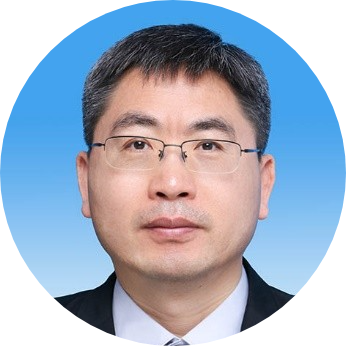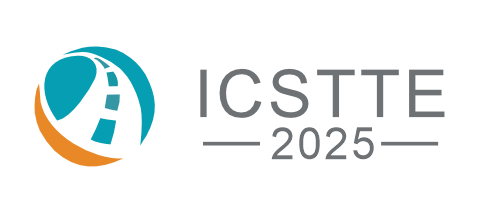Plenary Speakers
Plenary Speaker Ⅰ

Rong Lin
China Transport Telecommunications & Information Center, China
Brief Biography:
Expert with Special Allowance from the State Council, Senior Professional Title (Level III), Former Deputy Director of the China Transport Telecommunications & Information Center, and Vice President of the Information Committee of the China Communications and Transportation Association. In recent years, he has received 12 provincial and ministerial-level science and technology awards and Standard Contribution Awards. He has authored three publications, led the formulation of six national and industry standards, and completed over 10 key industry research projects commissioned by the Ministry of Transport. He spearheaded the development of major informatization projects such as the National Key Commercial Vehicle Networked Control System and the National Transportation Smart Card Interoperability System. As a proponent and practitioner of cloud computing and cloud services in China's transportation industry, he has been instrumental in advancing these concepts.
Speech Title:
China's Practice and Reflections on Intelligent Transportation Development
Abstract:
This report outlines the development trajectory of smart transportation in China, proposing five stages of its evolution with distinct characteristics. By analyzing the policy objectives, features, and technological support directions of the Chinese government's smart transportation initiatives, it summarizes the practical application scenarios, typical case characteristics, and industry impact of smart transportation in the transportation sector. Further analysis identifies current risks and challenges in China's smart transportation development, along with strategic and practical countermeasures to address these issues. Finally, the report provides a forward-looking perspective on the future of smart transportation in China.
Plenary Speaker Ⅱ

Lixing Yang
Beijing Jiaotong University, China
Brief Biography:
Prof. Lixing Yang is currently the Dean in School of Systems Science, Beijing Jiaotong University. He was born in Hebei province in 1976, and received the B.S. and M.S. degrees from the College of Mathematics and Computer, Hebei University in 1999 and 2002, respectively. In 2002, he came to Tsinghua University for further study, and received Ph.D. degree in 2005. He was promoted as a full professor in 2013. His current research interests include traffic and transportation planning, railway traffic management and control, intelligent transportation systems, uncertain theory and optimization, etc.
Dr. Yang has published more than 220 papers on some prestigious journals and conferences, such as Transportation Research Part B/C/D/E, Transportation Science, INFORMS Journal of Computing, Automatica, Omega, European Journal of Operational Research, Naval Research Logistics, Engineering, Frontiers of Engineering Management, IEEE Transactions on Intelligent Transportation Systems, etc. A number of published papers are selected as the 'Highly Cited Papers' or 'Hot Papers' in Web of Science. Prof. Yang is a Fellow of the Asia Pacific Industrial Engineering and Management Society. He was selected as the council members for several societies in China, including the Society of Management Science and Engineering of China, Systems Engineering Society of China, Operations Research Society of China, etc. He was selected as 'Highly Cited Chinese Researchers' by Elsevier in 2020, 2021 and 2022.
Speech Title:
Energy-Efficient Operation of Urban Rail Transit—Models and Methods
Abstract:
China's urban rail transit has experienced rapid development. Behind the remarkable growth in operational mileage, continuous expansion of network scale, and surging passenger flow, the issue of excessive energy consumption during operation has emerged, placing significant pressure on energy supply departments. Therefore, designing better train operation plans to reduce energy consumption and operational costs, thereby achieving energy conservation, emission reduction, and promoting green travel, has become a major concern for urban rail transit operators. This report focuses on energy efficiency and emission reduction in urban rail transit and employs mathematical optimization methods to introduce three effective approaches for energy-efficient train operation, including speed profile optimization, energy-efficient timetabling, and optimized train utilization. Furthermore, corresponding models and algorithms are designed for different problems, and case studies are conducted. Numerical experimental results validate the applicability and effectiveness of the proposed methods. Finally, potential directions for future research are outlined.
Plenary Speaker Ⅲ

Ping Li
China Academy of Railway Sciences Corporation Limited, China
Brief Biography:
She has long been engaged in research in the fields of intelligent railway, railway big data application, railway information planning, etc., presided over and completed more than 30 national, provincial and ministerial projects, published 121 papers, granted 13 invention patents, and written 3 books, including 'Enterprise Architecture and Standard System of Railway Intelligent Transportation', 'Big Data Application on High-Speed Railway', and 'Big Data Technology and Application on Railway Texts'. Besides, she has jointly presided over and put forward the system architecture of intelligent high-speed railways and the overall planning of railway informatization. She has also been responsible for the Research and Development(R&D) of the national applications on the railway master data management platform, data service platform, and safety warning and emergency management platform. For the moment, she has won 2 awards related to digitalization from the international railway union, 1 outstanding prize for Tianjin Science and technology, 7 first prizes and 11 second prizes of science and technology from China Railway Society, and 1 first prize for scientific and technological innovation achievements from China Industry-University-Research Institute Collaboration Association.
Speech Title:
Innovation and Practice of Intelligent High-Speed Railway
Abstract:
By the end of 2024, the operating mileage of China's high-speed rail has reached 48000 kilometers. How to integrate technologies such as big data and artificial intelligence to achieve comprehensive perception of the high-speed railway network status, data fusion processing, and intelligent production of operation and maintenance decisions is facing important challenges. This paper proposes the definition and core characteristics of intelligent high-speed railway, constructs an intelligent high-speed railway system architecture consisting of technical system, data system, and standard system, proposes an intelligent high-speed railway brain platform that integrates digital new technologies such as BIM, big data, and artificial intelligence, analyzes core technologies such as intelligent construction, intelligent equipment, and intelligent operation and maintenance, and finally applies the system architecture to the Beijing Zhangjiakou high-speed railway, comprehensively verifying the overall functions and core technologies of intelligent high-speed railway. Application practice has shown that comprehensive perception and fusion processing of high-speed rail infrastructure, mobile equipment, external environment and other data play an important role in improving the service quality of the Beijing Zhangjiakou high-speed rail, reducing the focus on operation and maintenance, and ensuring operational safety.
Plenary Speaker Ⅳ

Yujie Li
Beijing Subway Operation Co., Ltd., China
Brief Biography:
Yujie Li (1983 - ), male, postdoctoral in engineering, senior engineer. He is currently the Deputy Chief Engineer of Beijing Subway Operation Co., Ltd. and the Manager of the Subway Power Supply Branch. He is a member of the expert database of Beijing Municipal Science and Technology Commission, a young expert committee member of the Track Branch of China Civil Engineering Society, a member of the Equipment Certification Committee of China Urban Rail Transit Association, and the Deputy Secretary - General of Beijing Rail Transit Society. He was the leader of the key field innovation team in the 2020 Transportation Industry Science and Technology Innovation Talent Promotion Plan. He also serves as an off - campus tutor for Beijing Jiaotong University, Beijing Institute of Technology, and North China University of Technology.
Speech Title:
Reconstruction of Intelligent O&M Production Mode for Beijing Subway Power Supply
Abstract:
Focus on the overall planning of Beijing Subway's intelligent operation and maintenance construction. The overall technical route for the construction of power supply intelligent operation and maintenance is established through the working methods of identifying key points, connecting chains, and integrating management. Describe in detail what changes have taken place in the operation and maintenance mode of the power supply specialty, what effects have been achieved, and what new management modes have been established.
Plenary Speaker Ⅴ

Sanjay Ranka
University of Florida, Gainesville, USA
Brief Biography:
Sanjay Ranka is a Distinguished Professor in the Department of Computer Information Science and Engineering at University of Florida. From 1999-2002, as the Chief Technology Officer at Paramark (Sunnyvale, CA), he developed a real-time optimization service called PILOT for marketing campaigns. PILOT served more than 10 million optimized decisions a day in 2002 with a 99.99% uptime. Paramark was recognized by VentureWire/Technologic Partners as a Top 100 Internet technology company in 2001 and 2002 and was acquired in 2002. Sanjay has also held positions as a tenured faculty member at Syracuse University, academic visitor at IBM and summer researcher at Hitachi America Limited. He has coauthored one book, four monographs, 300+ journal and refereed conference articles. He is a fellow of the IEEE, AAAS and AAIA (Asia-Pacific Artificial Intelligence Association) and a past member of IFIP Committee on System Modeling and Optimization. He won the 2020 Research Impact Award from IEEE Technical Committee on Cloud Computing. He was awarded the 2022 Distinguished Alumnus Award from Indian Institute of Technology, Kanpur. His work has received 18,000+ citations with an h-index of 65 (based on Google Scholar). He has consulted for several startups and Fortune 500 companies.
Speech Title:
Leveraging AI for Smart Transportation
Abstract:
Mitigating traffic congestion and improving safety are the cornerstones of transportation within smart cities. Current practices collect and analyze data from sensors and video processing and then process it offline. Hence, they are limited in proactively reducing traffic fatalities and preventable delays at intersections. We are developing real-time artificial intelligence algorithms and software to analyze video feeds from cameras and fuse them with ground sensor data to develop deep learning based digital twins that mimic traffic behavior both at an intersection and at the city level. We are also using the resultant output to develop technologies that will quantitatively measure and rank intersections by safety, to transmit information about unsafe behavior to connected vehicles and pedestrians in real-time to prevent accidents, and to optimize signal timing to reduce congestion. Each of these advances are presently being field tested at intersections in the City of Gainesville and in Seminole County. The overall effort is geared toward developing transportation solutions for leading edge 21st century smart cities.
